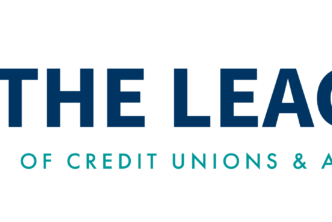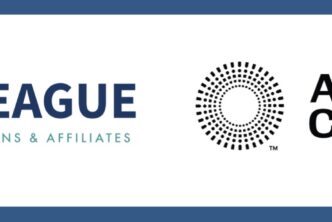Jared Ross, LSCU Executive Vice President, Advocacy, speaks on ICBA attacks on tax status
This is part 1 of a 4-part series giving in-depth information on LSCU’s Hike the Hill event held Oct. 22-23.
 Leading up to the annual Hike the Hill in Washington, D.C., a lot was made of the Independent Community Bankers Association (ICBA) push to lawmakers, asking them to “Wake Up” to the credit union tax status. While their campaign has a new name, the tired arguments they are making and the rhetoric used is nothing new. Factoring in the recent push from the Florida Bankers Association to tax “mega credit unions” and their push poll showing that a majority of Floridians don’t support the credit union tax exemption – we knew this year’s Hike would be extremely important.
Leading up to the annual Hike the Hill in Washington, D.C., a lot was made of the Independent Community Bankers Association (ICBA) push to lawmakers, asking them to “Wake Up” to the credit union tax status. While their campaign has a new name, the tired arguments they are making and the rhetoric used is nothing new. Factoring in the recent push from the Florida Bankers Association to tax “mega credit unions” and their push poll showing that a majority of Floridians don’t support the credit union tax exemption – we knew this year’s Hike would be extremely important.
When word got out that the Florida Bankers were looking for a champion in the Congressional Delegation, we began to dig in to find out who their target Congressional member would be. We quickly received word that Rep. Ted Yoho, a Republican from Florida’s 3rd Congressional District, was being targeted as the lead sponsor. On Oct. 8, a contingent of credit unions and the League met with Yoho to discuss this issue and had a very productive conversation. During the Hike, we again met with Yoho to discuss the proposed legislation and explain to him why this was not necessary and bad public policy.
At the meeting, Yoho pulled out the bankers’ talking points and asked us point blank to respond to each. For every talking point he threw at us, we had not just an answer, but the truth on our side:
- Issue 1: Credit unions’ tax-free status gives them an unfair market advantage.
- Our response:
- Credit union market share has remained fairly steady in the last 30 years and still sits under 10%. Big banks continue to grow market share rapidly.
- Issue 2: Advertising that suggests “anyone can join” conflicts with the field of membership structure from which credit unions originated.
- Our response:
- Field of membership is driven around a common bond. Congress never intended that people be excluded from credit union benefits. “Inclusivity” must become the federal policy perspective. “Exclusivity” should be a right for members to exercise, not the government.
- Issue 3: Credit unions purchasing banks is beyond the mission of credit unions
- Our response:
- These transactions (there have been less than 30, ever) have occurred when banks have sought out credit unions. This is a win-win for the community. When a credit union purchases a bank, another community financial institution is saved, employees keep their jobs and the communities services by the institution receive the benefits of credit union membership.
- Issue 3: Credit unions purchasing naming rights of athletic and entertainment complexes does not reflect the credit union mission.
- Our response:
- Credit unions must be able to innovate in a transformational economy. Naming rights are an effective and cost-efficient way to create awareness in the community that credit unions exist and are legitimate financial alternatives they may wish to consider. Banks write these transactions off as business expenses, and therefore avoid taxation on them.
- Issue 5: Credit unions were never intended to be commercial lenders.
- Our response:
- Credit unions should be able to serve the commercial-purpose credit needs of members without contrived limitations. In an ever-adapting economy, credit unions must be allowed to innovate and provide access to capital. Banks don’t seem to be complaining that other banks now sell insurance, offer title services, etc., which is not what banks were originally chartered to do.
- Issue 6: Banks said that they have actually become more adept at serving people of modest means than credit unions
- Our response:
- With more than 90% of the market share, banks are obviously going to have a greater percentage of customers who fall into the category of “modest means.” But if you truly look at the make up of credit union membership compared to bank customers, there is no doubt that credit unions are the true community based financial institutions. Credit unions are about people, not profit.
- Our response:
- Our response:
- Our response:
- Our response:
- Our response:
- Our response:
The bottom line, as we told Yoho, was that credit unions aren’t the boogeyman that banks want to make us out to be.
After peppering us with questions and listening to our rebuttals, the congressman looked at his legislative director and told him that he has never had a constituent other than a banker come complain about credit unions. He said that credit unions may have changed since their original chartering, but the world has changed, too – and that he doesn’t see the need to impose a tax on credit unions. For that reason, he would be taking a pass on introducing this legislation.
This was true advocacy in action and shows what being involved in grassroots advocacy can do for our industry. While this is one battle we have won, we know the war is far from over. We must continue to be vigilant because we know the bankers won’t give up any time soon. I hope more and more of you will join us in our efforts and continue to be a proud voice for our great credit union industry.





